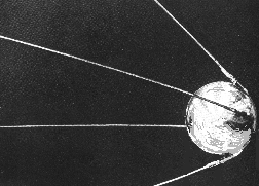Sun Microsystems has announced a link-up with Google.
What’s going to come from this?
Nobody knows — yet. But here’s a quote from the Blog maintained by Sun’s President, Jonathan Schwartz:
Or finally, as I did last week at a keynote, ask the audience which they’d rather give up – their browser, or all the rest of their desktop apps. (Unanimously, they’d all give up the latter without a blink.) All these trends show a slowing upgrade appetite calling into question the power of traditional distribution. In stark contrast to the value of volume, community and participation.
Now, I have been nothing if not tediously repetitive in stating my belief that volume begets value – best demonstrated by the rise of the free software movement (whose volume is derived from its price, its value from innovation, in all forms). The cost of reaching customers, traditionally the most expensive part of building a business, has largely been eliminated – resulting in massive, global participation. Value’s literally everywhere the network travels, on every device it touches (and it’s subsidizing some very interesting ideas.)
But value is returning to the desktop applications, and not simply through Windows Vista. But in the form of applications that are network service platforms. From the obvious, to music sharing clients and development tools, there’s a resurgence of interest in resident software that executes on your desktop, yet connects to network services. Without a browser. Like Skype. Or QNext. Or Google Earth. And Java? OpenOffice and StarOffice?
If I were a betting man, I’d bet the world was about to change. And that what just happened in Massachusetts, when a state government made what was to me a very rational statement – we will pick an open standard to protect the right of our citizens to access data and services; we will then buy from vendors that support standards – will be a shot heard ’round the world.
What will they produce? Here’s John Paczkowski’s guess:
If Sun and Google do uncrate an office productivity solution — say a Sun Ray ultra-thin client optimized to run “Google Office” — that shot will definitely be heard up in Redmond, along with a lot of expletives and an anguished scream or two. Because if anyone can shift personal computing out of Microsoft’s domain and into the open, it’s Google.
Interesting times. Watch this space.

